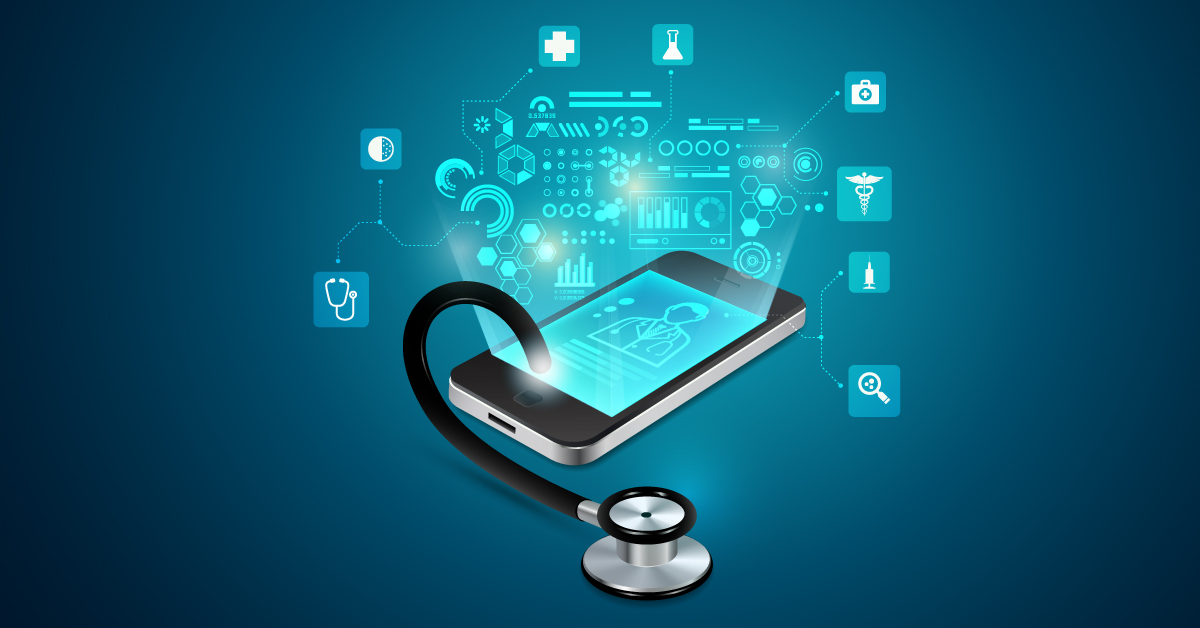E-HEALTH APPS: WHEN TECHNOLOGY TRANSFORMS HEALTHCARE
The Digital Revamp
Change is inevitable and a scenario like the pandemic has forced us to adapt and open up to the “new normal” of digital transformation.
When we draw a comparison between the old world paradigm and the new digital normal of growth in the digital age, there has been an increased collaboration and information sharing to solve societal problems to a greater extent.
Digital technology seems to have emerged into every aspect of the lifestyle, changing the way delivery models provide outcomes, harnessing data to drive decisions, and automating processes so that they keep up with the pace of the businesses. Even consumers seem to be happily adapting to this change and are finding it more expedient. As per the PwC Report, India’s digital connectivity is expected to grow at about 80% by 2034, with rural Internet users increasing by 58% annually, India has set the stage for the next wave of digital transformation.
E-Healthcare; Future of Healthcare
As far as the healthcare sector is concerned, this digital revamp is the next big thing since organizations are competing not just for the expertise of managing health data but also delivery experiences in real-time that are in par with the needs of patients in this digital age. The Indian Government has been continually taking steps to provide accessible and affordable services, laying the foundation for value-based healthcare.
These new healthcare models or more specifically, ecosystems of solutions are being visualized and realized which are allowing providers to save time, helping patients to take control of the healthcare data, and forcing business models to be revamped including more customized and personalized treatments. Delivery of care is being reimagined, moving hospitals to a much broader perspective beyond brick and mortar.
With the social distancing norms and avoidance of hospitals for non-COVID treatments, E-Healthcare is in a growing phase. The gradual shift from curative to preventative care and the advent of technology will also change the way diagnosis and treatment is done. A visible change during the crisis was online pharmacies catering to the availability of drugs and medicines to patients. This remote access availability is just one of the many solutions that the E-Health apps are intending to provide.
From E-Consultation to Post-Discharge Management
The E-health app will be an innovative business model which enables E-consultations connecting doctors to patients virtually and is one major segment of the mobile health (M-health). This is very valuable for specific branches of medicine where physical examination is not required like psychiatry, sexology, nutrition, dermatology.
Another service that the E-health apps can be put to use is booking for lab tests as per the convenient time slots. It can ensure better patient control avoiding any unnecessary waiting time.
The ease in diagnosis also caters to the test reports of laboratory samples being sent to the patient and the doctor digitally, without any delay. This also enables increased patient engagement with transparency in the procedure carried out.
As a result of the data-driven healthcare system, the reports of the doctor are then used to generate a list of medicines to be ordered and delivered online which makes it a complete experience for the patient.
Some of the key trends that will drive the E-healthcare strategies include:
1. Tech-enabled medicine services with the advancement in 5G technology. Even rural areas are expected to benefit from this.
2. Remote health system with mobile-based personal tracking devices for improved patient engagement.
3. AI-assisted services and AR such as computational pathology, clinical decision support system (CDSS), practicing surgery runs VR consultations.
4. Electronic Medical Records (EMR) along with cloud computing to benefit accessibility to patient data. This should help reduce medical errors and improve health outcomes.
5. Digital Chatter Platforms where medical professionals share knowledge and ask for help. There are also communication technologies that help connect doctors around the world for both a second opinion and training. Overall, the healthcare market is likely to witness more two-way schemes to promote the easier adaptation of technology between public and private partners and will result in a shift from procurement to partnership mode.
NDimensionZ – Transforming Ideas into Real World Applications
NdimensionZ is a global leader in data center management, IT consulting, Mobile application development, outsourcing, and next-generation services.
Having an experienced team for the various needs of client such as ISO/PCI/GDPR Consulting, Mobile Application Development, 24*7 Data Centre Managed Services, Security Hardening, Multimedia & SEO, Business Process Management, etc, NDimensionZ help customers to stay abreast in the competition through strategic consulting, technological innovation and continual improvement.
NDimensionZ has handled mobile application development for healthcare apps, utility apps, telecom apps, entertainment apps, and more. They have experience in providing assistance for E-health app companies to set up their engineering team and provided L1 support and internal IT and infrastructure. Since they also provide services like security assessment, ISO consultation, etc the quality of work is not compromised.
With a wide range of clients including MedLife, V-Guard, Kerala Police, etc NDimensionZ is a one-stop solution for the technology-driven next-generation services.




